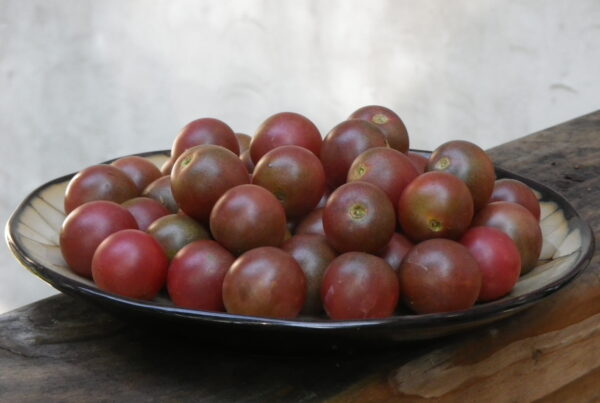Take Action!
Shaping the Next Farm Bill
Delays in Congressional action on the Farm Bill have given us an opportunity to continue advocating for what is really needed to restore our soil and waters, reduce greenhouse gas emissions, and help farmers cope with the impacts of climate disruptions. House and Senate Agriculture Committees are drafting their versions of the 2024 Farm Bill, and we expect floor action in both chambers sometime this spring. When this occurs, every Member of Congress matters, not just those who serve on Agriculture Committees. Let our Senators and Representatives know what you need and want in the Farm Bill.
While the delay caused much consternation at first, the good news is that Congress has extended the 2018 Farm Bill through September 30, 2024, thereby protecting most programs from interruptions. NSAC is closely monitoring those few programs that may still be at risk during this extension period.
Top Farm Bill Priority: Making Inflation Reduction Act (IRA) funding permanent.
Inflation Reduction Act (IRA) conservation program funding for climate smart agricultural and forestry practices must become a regular part of the Farm Bill, and must not be rescinded or shifted into commodity or crop insurance subsidy programs. See NSAC blog posts on positive impacts of IRA conservation funding, including increased dollars available to farmers, links to 20 farmer stories, and helping farmers make their operations more resilient to extreme weather.
Featured Marker Bill – let’s get Organic its Fair Slice of the Budgetary Pie!
Strengthening Organic Agriculture Research (SOAR) Act in the House
Organic Science and Research Investment (OSRI) Act in the Senate.
These acts would strengthen USDA organic research programs by ramping up funding for the Organic Research and Extension Initiative (OREI) to $100 million by 2028, and providing Congressional authorization for the Researching the Transition to Organic (RTOP) program, formerly known as “organic transitions” (ORG). The bills would also establish a cross-agency initiative to coordinate organic research and would direct the USDA Agriculture Research Service (ARS) to increase the acreage of organically managed land in its research field trials. To learn more about these bills see the Organic Farming Research Foundation (OFRF) blog posts on SOAR and OSRI for more.
Other Farm Bill marker bill priorities include:
- The Converting Our Waste Sustainably (COWS Act), modeled on California’s Alternative Manure Management Program, would help livestock producers to implement manure composting, other solid manure handling systems, and pasture-based production to minimize methane emissions and water pollution.
- Reform Crop Insurance and Commodity Payments programs so that they support smaller to midscale diversified farms, not just industrial scale commodity production. See the NSAC Blog on Insurance and Commodity Reform to learn more.
- The Strengthening Local Meat Economies Act and the Strengthening Local Processing Act would support smaller-scale independent livestock farmers and meat processors by reforming USDA meat procurement procedures and opening new local and regional market
- Click here for more information on these and other Marker Bills that NSAC has initiated, helped to shape, or supported.
Call your Senators and your Representative today to urge them to co-sponsor the organic research bill and/or any of the other measures listed above that would most affect your farming operation. When you call, ask to speak with the staff person in charge of agricultural issues. You can reach Senator Mark Warner at 202-224-2023 and Senator Tim Kaine at 202-224-4024. If you do not know your Representative’s phone number in DC, call the Capitol Hill Switchboard at 202-224-3121.
NOTE: in Virginia, Rep Abigail Spanberger (D-7th) is our one member of the House Agriculture Committee, and she has been a strong advocate for sustainable, organic, socially just, and climate-friendly agriculture. She wants to hear from you what you need in the next Farm Bill to meet the challenges of farming in the era of climate change. Contact her, tell her your story and your highest priorities for the Farm Bill, including specific programs or marker bills that are most relevant to your operation and circumstances.
Wanted!
Your Stories about Farming in the Age of Climate Crisis
I will facilitate a breakout session at the VABF / Virginia State University Small Farm Outreach Program (SFOP) Summit in Roanoke on January 19-21 (https://vabf.org/2024-vabf-sfop-summit/), Meeting the Climate Challenge: Sharing Stories, Co-creating Solutions. After a 30-minute presentation to set the stage, we will have an open discussion to explore several questions, including:
- What changes in weather patterns have you noticed at your location?
- How have these changes affected your farming operation, crops, livestock, and workers?
- What strategies or innovations have you used to cope with climate challenges?
- Have you changed your crop mix, crop rotation, cultivars, livestock species, or breeds in response to the demands of a shifting climate?
- How well have your climate adaptation strategies worked for you?
- Have you utilized any USDA programs (conservation or other) to help you cope with climate changes? Have they been helpful?
Coms share your stories and perspectives, and join the brainstorm to develop strategies and solutions. If you would like to share your story with me ahead of time (to inform my opening presentation), contact Mark Schonbeck, schonbeckmark@gmail.com or 540-835-7664. Note: if you have observations or opinions to share on this topic yet would rather stay anonymous, I would be very interested in hearing your insights and experiences, as they will inform my presentation at the Conference, and I will maintain confidentiality.
2024 EQIP and CSP in Virginia
Application Ranking Date March 8, 2024
Virginia NRCS has announced its Application Ranking Dates for both the Environmental Quality Incentives Program (EQIP) and the Conservation Stewardship Program (CSP): March 8, 2024. This means that if you submit a completed application for one of these programs anytime between now and then, you will be considered for receiving a contract for financial assistance in implementing a suite of conservation practices that you choose to address soil health, water quality, or other conservation objectives that you select.
In addition to regular Farm Bill funding for CSP and EQIP, the Inflation Reduction Act (IRA) of 2022 has provided additional funding for both programs, specifically to support Climate Smart Agriculture and Forestry practices such as cover crops, diversified and resource-conserving crop rotations, organic soil amendments, conservation tillage, and advanced grazing practices like management intensive rotational grazing and silvopasture.
With farmer demand for CSP and EQIP contracts far exceeding current funding levels, the supplemental IRA Conservation funding has been a tremendous boon, both for farmers seeking to participate in the highly oversubscribed and underfunded CSP and for the expansion of climate-smart farming practices. So – let’s make the IRA climate smart conservation funding a regular part of conservation funding in the upcoming Farm Bill. This is a top priority for agricultural conservation and climate resilience, yet some members of Congressional agriculture committees would like to rescind (cancel) the IRA conservation funding. The more we use the IRA funds in the coming months, the fewer dollars can be “clawed back” – and the stronger our case for making the IRA climate smart conservation investment a regular part of Farm Bill programs.
So, if you would like a “hands-up” to achieve your soil health, resource stewardship, and climate resilience goals, ask at your district conservation office about EQIP and CSP, or visit the Virginia NRCS website for more information. Ask about IRA funding for climate-smart practices.
Special Opportunity
James River Buffer Program
Designs and installs riparian forest buffer at no cost to you
If your farm is located within the James River watershed and you would like to plant a forested buffer to protect water quality, provide wildlife habitat, and improve farm biodiversity, check out the James River Buffer Program. The James River Association, the Virginia Department of Forestry, and the Chesapeake Bay Foundation are working with farmers and landowners across the middle and upper James River watershed to restore or create forest buffers that improve the quality of local waterways. The program works with you to select tree species, plants the buffer, and provides maintenance for the first three years at no cost to you. Plantings can include income generating species such as sugar maple for syrup production.
Other NSAC News Stories and Blog Posts
Check out NSAC’s 2023 Year in Review and Vision for 2024. It will make you excited to know that VABF is a full Represented Member of this awesome coalition. Photos include scenes from our March, 2023 Farmers’ Rally for Resilience, when 500 of us marched peacefully from Freedom Plaza to near the Capitol calling for a Farm Bill that supports community based solutions for climate resilience, racial equity, and local/regional food systems.






